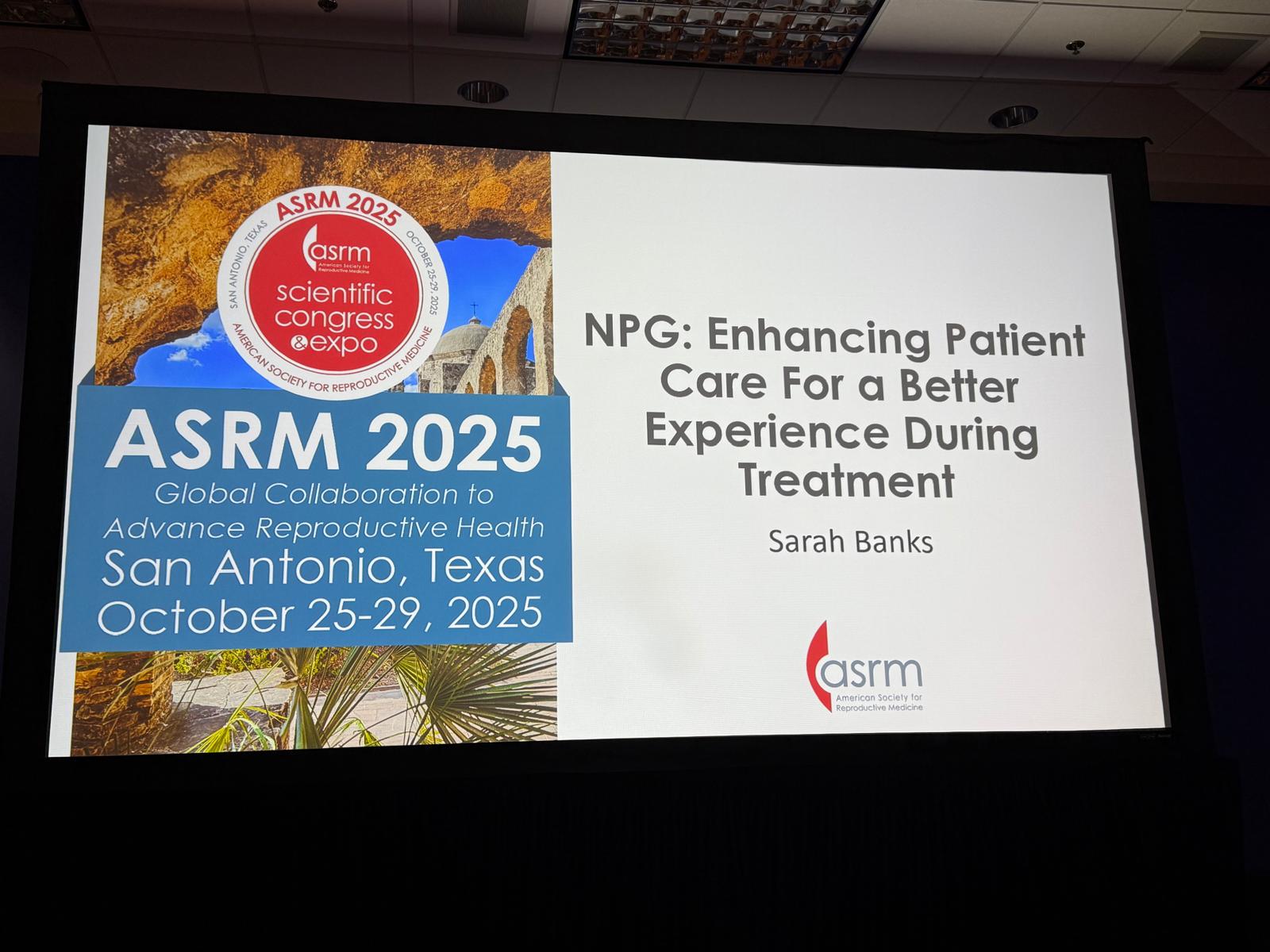
Reflections from ASRM: Why Patient Care and Emotional Support Matter More Than Ever

Psychological Safety: The key to exceptional patient and staff care
October 16, 2025
Navigating the festive season: The emotional toll for fertility patients
November 20, 2025Last week, I had the privilege of presenting at the ASRM Scientific Congress in Texas, speaking on “Enhancing Patient Care for a Better Experience During Treatment.” It was a deeply rewarding experience - not only because the talk was so well received, but because it led to some incredibly meaningful conversations with clinics, nurses, counsellors and others working across fertility care.
During my session, people were taking pictures of the slides, nodding along, and afterwards I had so many come up to say things like “I’ve lived this myself - you spoke directly to my experience.” Those moments are always the most powerful. They remind me why I do this work: because the emotional experience of fertility treatment is just as important as the medical side - and it needs to be recognised and prioritised.
I also had some great conversations with clinic teams who said there is a growing awareness of the need for more emotional support in fertility care - and a clear desire to do better. That gives me hope.
And yes… it was a long journey to get there (a missed connection and a lot of airport stress) - but it was absolutely worth it. Being able to connect with colleagues who share the same passion for improving patient experience always fills me up.
These are the things that really stood out to me...
Theimportance of patient support in today’s fertility landscape
1. Improving access to care
We talked a lot about access - and how uneven it still is - and this is evident in the UK and the US.
Patients face barriers such as:
- Financial strain - especially where treatment is self-funded.
- Geographical location - long travel times to clinics or limited local services.
- Eligibility or funding limitations - leaving many without support.
- Barriers faced by minority groups, LGBTQ+ families and solo parents - who may feel unseen or unsupported.
Improving access isn’t only about offering treatment - it’s about ensuring people feel welcome, respected and cared for when they seek it.
Simple but meaningful steps include:
- Inclusive language in all communication
- Representation in marketing, waiting rooms and resources
- Flexible appointment and finance options
- Providing emotional support alongside treatment information
When patients feel seen and understood, outcomes (both emotional and clinical) improve.
2. The impact of staff burnout on patient care
One of the most insightful sessions I attended was on staff burnout (with an added bonus of hearing from Alice Domar, whose work has shaped so much of what I do, and Elizabeth Gill. I was genuinely honoured to listen to them.)
It reinforced something we don’t talk about enough:
When staff are emotionally exhausted, patient experience suffers, and long-term, burnout has serious health consequences for staff themselves.
Fertility care is emotionally heavy work - constant pressure, difficult conversations, complex expectations. Supporting staff isn’t a luxury, it’s a necessity.
This can look like:
- Protected time for team debriefs
- Emotional support / supervision sessions
- Fair workforce rotation around emotionally demanding tasks
- Encouraging rest, boundaries and psychological safety in teams
Because staff who feel supported are better able to support patients.
3. Why patients sometimes choose treatment abroad
Another interesting session was about why patients choose treatment overseas. The main reasons patients consider it are:
- Lower cost
- Fewer legal restrictions
- Shorter waiting times
But patients also describe some key challenges when they go abroad:
- Feeling like just another number
- Language barriers leading to misunderstandings
- Hidden or unexpected fees
- Poor communication, especially once home again
It reinforces what I hear so often:
The need for compassionate, clear, human-centred communication is universal.
It doesn’t matter where treatment takes place - patients want to feel cared for, informed, respected and supported.
A positive shift
What encouraged me most this week was that patient experience is becoming a higher priority.
Clinics are:
- Asking questions
- Listening
- Re-thinking how support is offered
- Looking for ways to build more emotionally supportive systems
This is the change we’ve needed for a long time - and it’s happening. And I am truly grateful to be part of the conversations driving that change.
If your clinic wants to improve emotional support and patient care…
Whether you're looking to:
- Train staff on compassionate communication,
- Improve emotional support pathways,
- Or introduce resources like The IVF Positivity Planner for your patients,
Get in touch today at [email protected] to discuss how I can support your clinic’s team.



